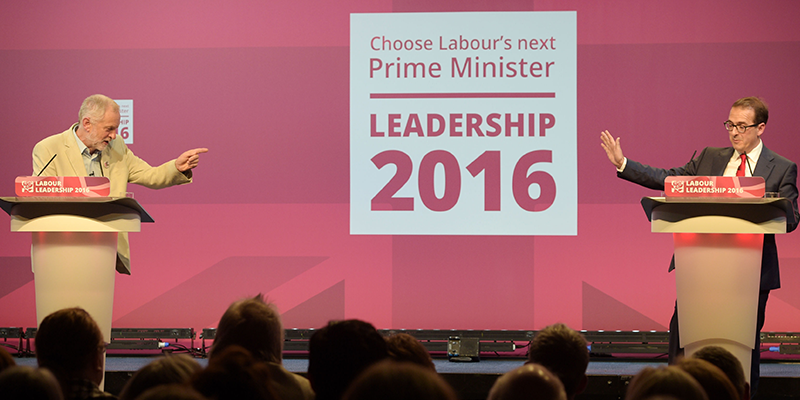Jeremy Corbyn may have secured his leadership, but his party remains as divided as ever
Over the last few weeks YouGov has conducted two major surveys of the Labour party membership: one for Election Data and one for The Times. The picture the surveys painted was one of a party that is still divided along the faultlines of the 2016 leadership election.
This article and dataset contains data from both surveys, as well as previously unpublished YouGov data.
Five big things which divide the Labour party membership…
Where their loyalties lie
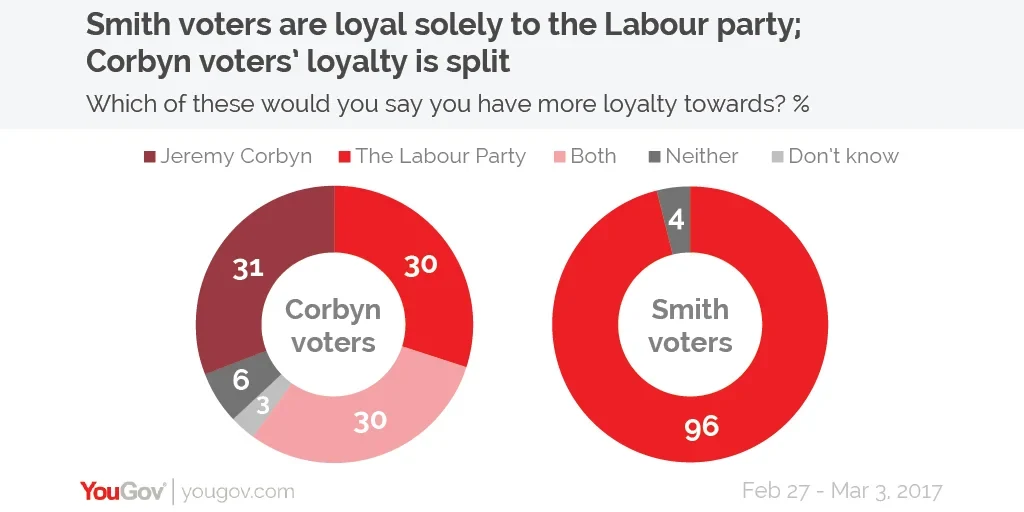
Asked whether they were more loyal to the Labour Party or Jeremy Corbyn, Owen Smith voters were unequivocal; 95% said the Labour Party. Corbyn voters are more torn – 31% are more loyal to the current leader, whilst 30% are more loyal to the party. A further 30% said they were loyal to both equally. Ultimately, just over half (56%) of the membership say they are more loyal to the party than the leader.
Their priorities for the party
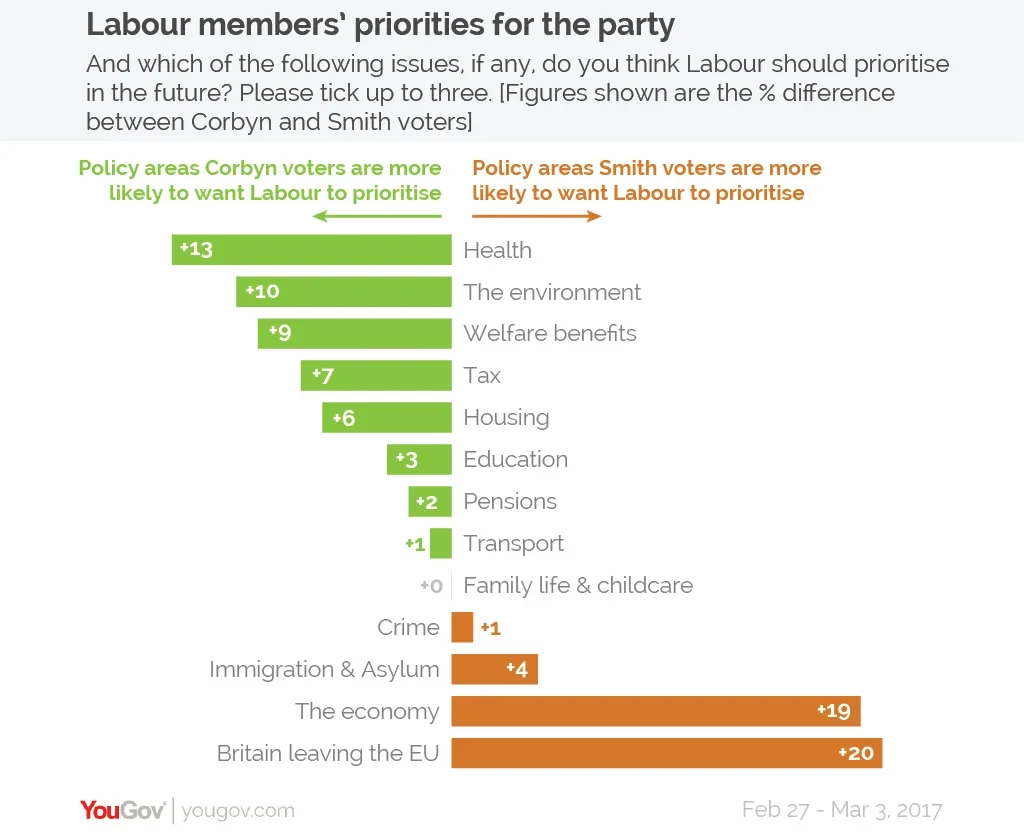
Whilst health was the top priority for both Corbyn and Smith voters, it was much more of a priority for Corbynites. A full 70% of Corbyn voters gave health as one of their top three priorities for the Labour party, compared to 57% of Smith voters.
Coming in a close second on the list of Smith voters’ priorities was Brexit, with 55% saying this should be a Labour priority. Although this was still third on Corbyn voters’ list, the proportion who thought it should be a priority was a full twenty points behind on 35%.
Likewise, whilst the economy was the third highest priority for Smith voters and fourth highest for Corbyn voters, almost half of Smith voters listed as a priority compared to 29% of Corbyn voters.
How they feel about the leader
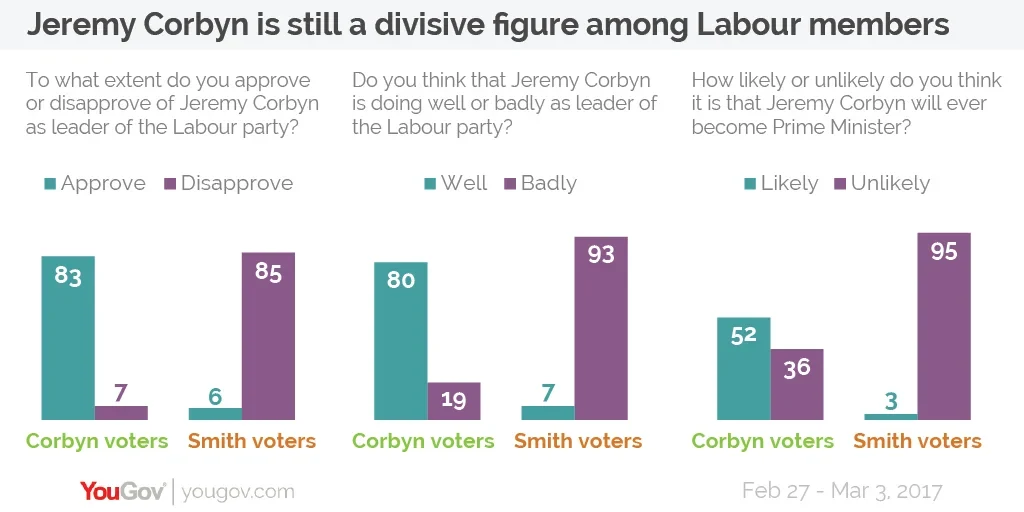
Unsurprisingly, the division between Corbyn and Smith voters is greatest over the performance of Jeremy Corbyn.
A huge proportion (83%) of Corbyn voters either approve or strongly approve of the Labour leader, compared to just 6% of Smith voters. By contrast, only 7% of Corbyn voters disapprove of Corbyn compared to 85% of Smith voters.
Likewise, 80% of Corbyn voters think he is doing very or fairly well, whilst 93% of Smith voters think he is doing badly.
And 52% of Corbyn voters think it is very or fairly likely their man will become Prime Minister, just 3% of Smith voters do.
What they want from the next leader
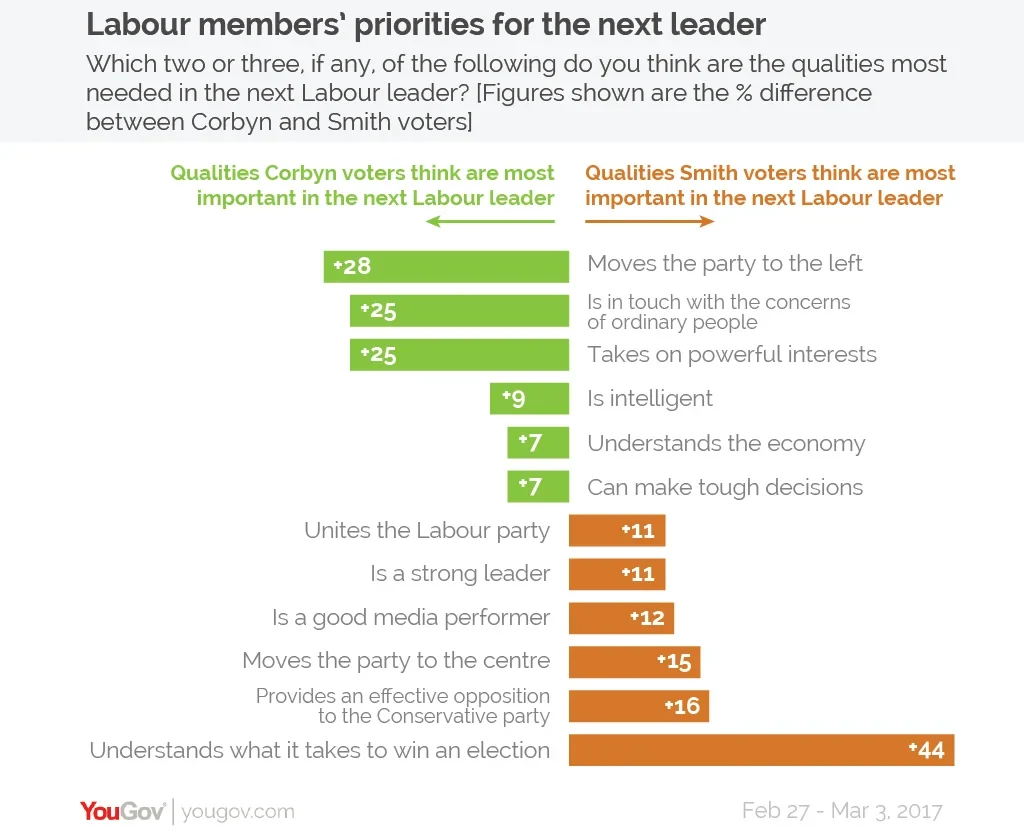
Whilst being in touch with the concerns of ordinary people and providing an effective opposition to the Conservatives ranked in the top three priorities for both sides, Corbyn voters were much more keen on the former (65% vs 40%), whilst Smith voters were more likely to prioritise the latter (58% vs 42%).
The most utterly stark difference between Corbyn and Smith voters was the extent to which they thought it was important that the next Labour leader understands what it takes to win an election. This was the second most important quality for Smith voters, at 55%, but for Corbyn supporters this option languished in tenth place out of a possible 12 options, with just 11% saying it was one of the two or three most important qualities the next leader would need.
Corbyn voters were far more likely to think it is important that the next Labour leader be able to take on powerful interests (31% vs 6% of Smith voters) – in fact, it was their third highest priority.
Their favourite Labour leader
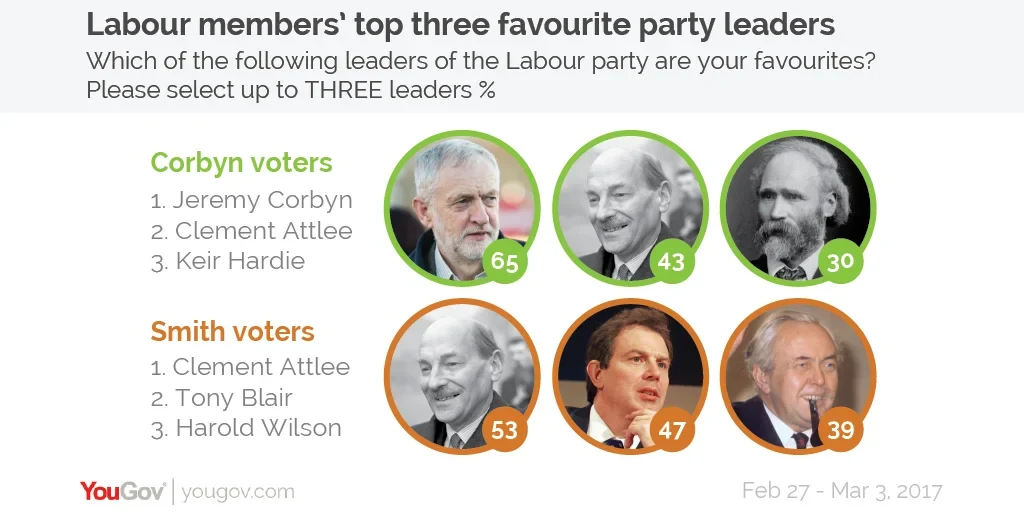
If the Labour party had a patron saint, there is a very good chance that it would be Clement Attlee. Prime Minister from 1945 to 1951, Attlee is known above all else for the creation of the NHS. When asked to select up to three of their favourite Labour leaders, Attlee topped the list, featuring in 45% of members’ selections.
Among Corbyn voters, however, he is a distant second to the current leader. Nearly two thirds (65%) say Jeremy Corbyn is one of their favourite Labour leaders. Attlee was chosen as a favourite leader of 43%, whilst Labour party founder Keir Hardie came in third on 30%.
By contrast, more than half (53%) of Owen Smith voters gave Clement Attlee as one of their top leaders, making him their number one choice. In second place came Tony Blair on 47%, whilst Harold Wilson came third on 39%).
Unsurprisingly, Corbyn and Blair are the most divisive leaders. Just 5% of Corbyn voters chose Blair as a favourite leader, whilst only 2% of Smith voters did the same for Corbyn.
…and one big thing on which they are still united
The party still stands for their values
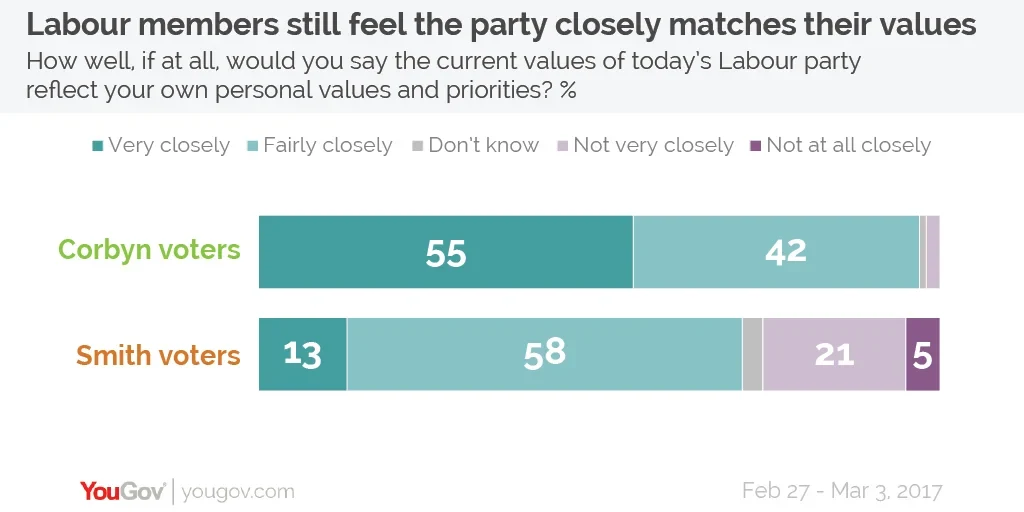
Despite their strong disagreement over a host of other issues, Labour members still overwhelmingly feel that the party reflects their own personal values and priorities. A full 97% of Corbyn voters said the party very or fairly closely reflects their values and priorities, as did 71% of Smith voters. Only about a quarter of Smith voters feel that the party doesn’t currently reflect their values.
The fact that most of Corbyn’s opponents still feel at home with the values of the party despite his leadership will be good news for those concerned that the party could split again as it did in 1981.
Photo: PA
